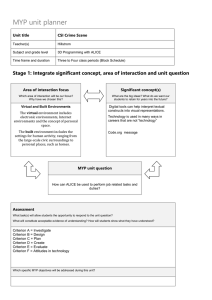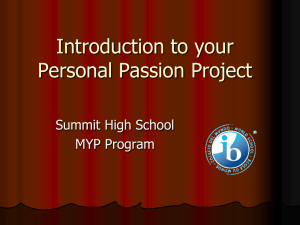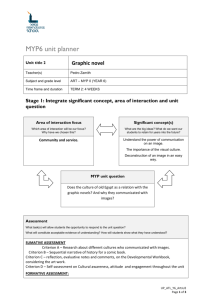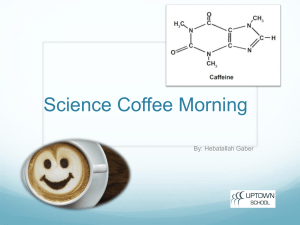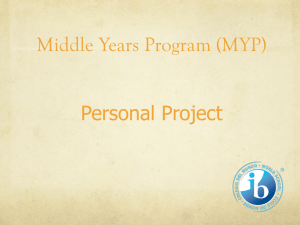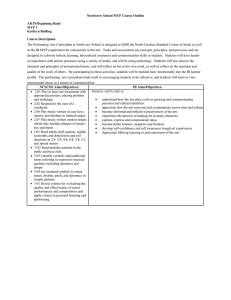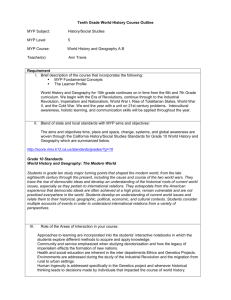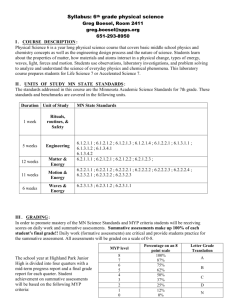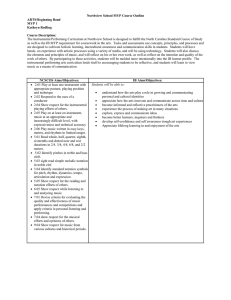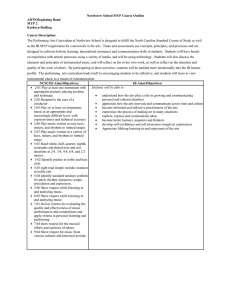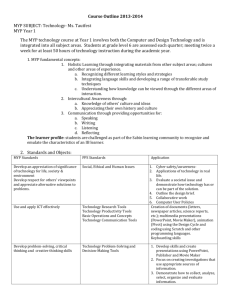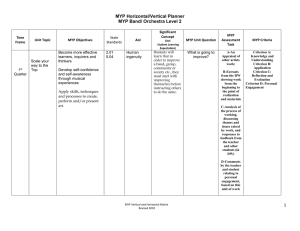Year 10 Technology
advertisement
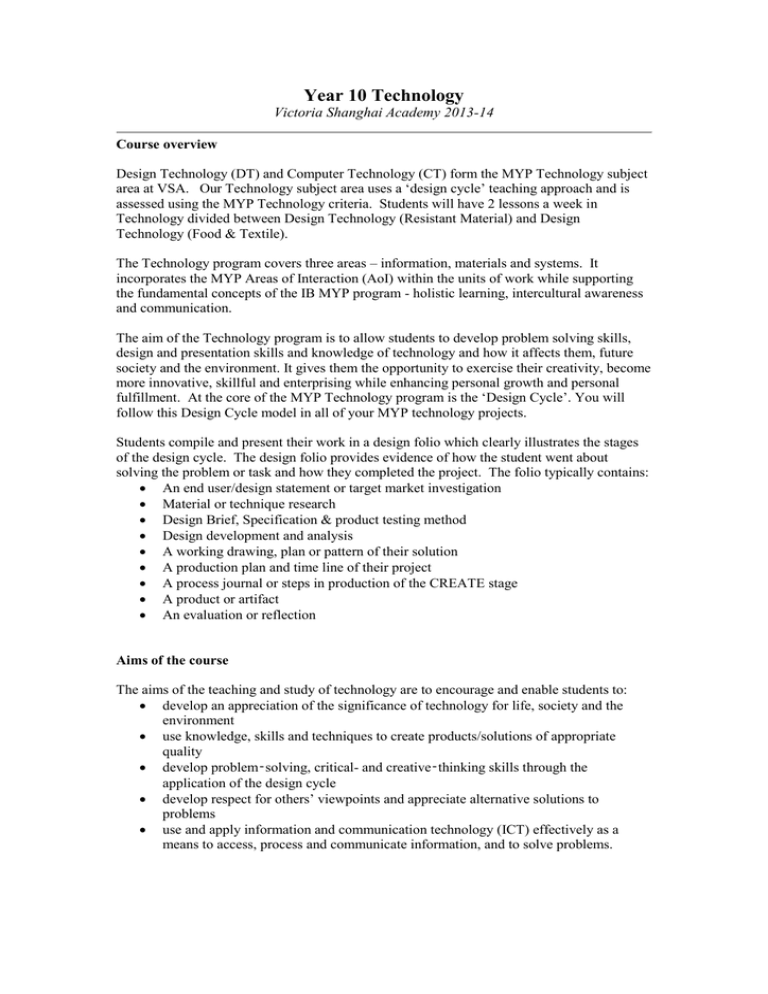
Year 10 Technology Victoria Shanghai Academy 2013-14 Course overview Design Technology (DT) and Computer Technology (CT) form the MYP Technology subject area at VSA. Our Technology subject area uses a ‘design cycle’ teaching approach and is assessed using the MYP Technology criteria. Students will have 2 lessons a week in Technology divided between Design Technology (Resistant Material) and Design Technology (Food & Textile). The Technology program covers three areas – information, materials and systems. It incorporates the MYP Areas of Interaction (AoI) within the units of work while supporting the fundamental concepts of the IB MYP program - holistic learning, intercultural awareness and communication. The aim of the Technology program is to allow students to develop problem solving skills, design and presentation skills and knowledge of technology and how it affects them, future society and the environment. It gives them the opportunity to exercise their creativity, become more innovative, skillful and enterprising while enhancing personal growth and personal fulfillment. At the core of the MYP Technology program is the ‘Design Cycle’. You will follow this Design Cycle model in all of your MYP technology projects. Students compile and present their work in a design folio which clearly illustrates the stages of the design cycle. The design folio provides evidence of how the student went about solving the problem or task and how they completed the project. The folio typically contains: An end user/design statement or target market investigation Material or technique research Design Brief, Specification & product testing method Design development and analysis A working drawing, plan or pattern of their solution A production plan and time line of their project A process journal or steps in production of the CREATE stage A product or artifact An evaluation or reflection Aims of the course The aims of the teaching and study of technology are to encourage and enable students to: develop an appreciation of the significance of technology for life, society and the environment use knowledge, skills and techniques to create products/solutions of appropriate quality develop problem‑solving, critical- and creative‑thinking skills through the application of the design cycle develop respect for others’ viewpoints and appreciate alternative solutions to problems use and apply information and communication technology (ICT) effectively as a means to access, process and communicate information, and to solve problems. Course outline Unit Title Learning Aid Design (DT) Unit Question How do young children learn? Area of Interaction Human Ingenuity Task/Topic/Texts To design and develop a prototype or product that serves as a learning aid for young children – you can choose your target market between the ages of 3 and 10 (kindergarten to grade 5 or so) but you do need to identify a specific age range. Stress Relieve Item (TT) How can we maintain work place health and safety? Health and Social Education To reduce the stress and pain caused by these unavoidable actions, suitable items are welcome to apply in the workplace. Assessment Criterion A Criterion B Criterion C Criterion D Criterion E Criterion F Investigation Design Plan Create Evaluation Attitude of Technology Maximum 6 Maximum 6 Maximum 6 Maximum 6 Maximum 6 Maximum 6
